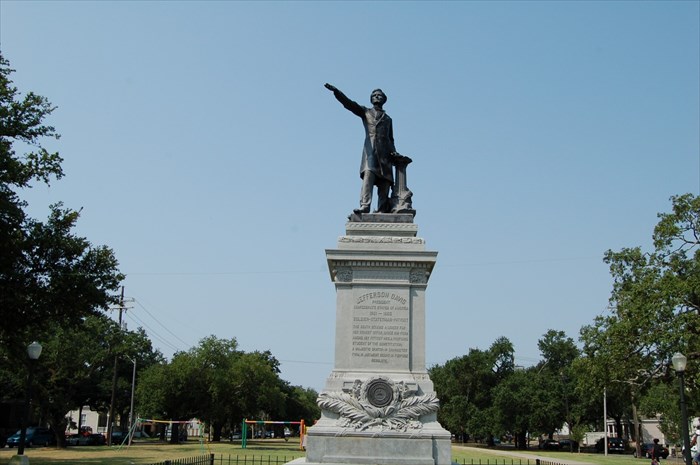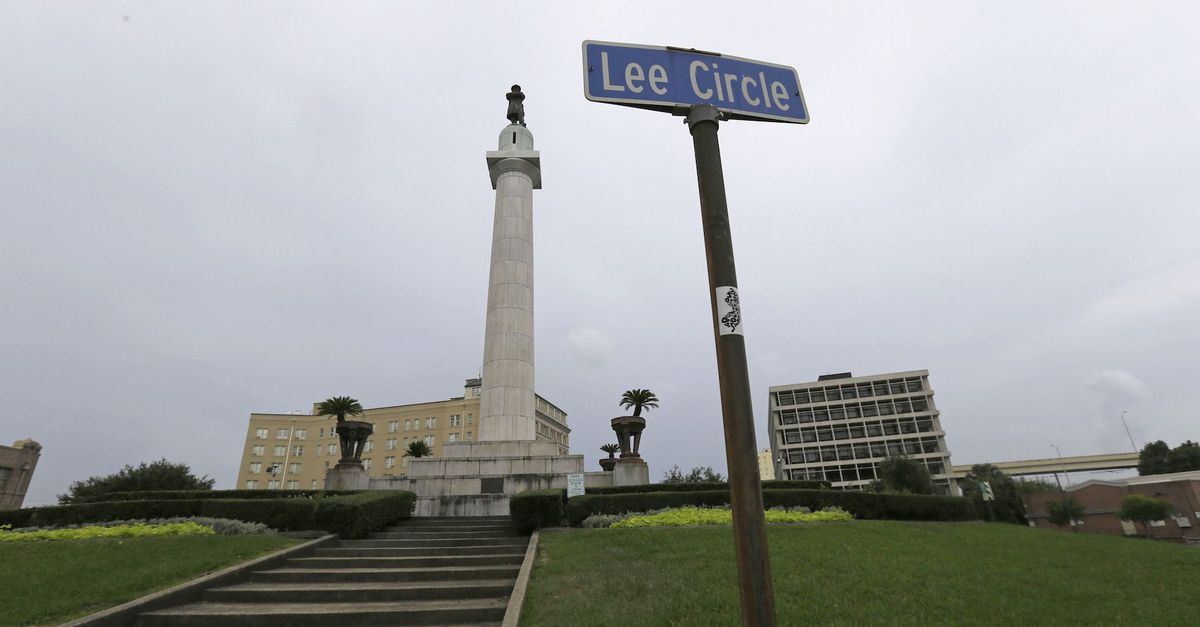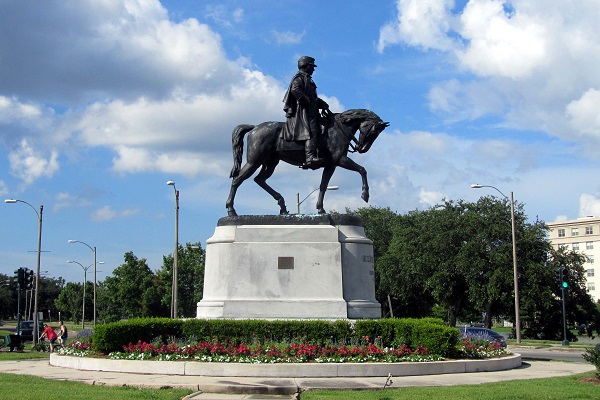“Those who fail to learn from history are condemned to repeat it.”
Throughout my life, I've always felt that our experiences in the past give us the knowledge to proceed towards the future. One's past molds them into the person that they are, and also lays the foundation for the person they are to become. With all this being said, it should not be an "end all to be all" judgment on a person's character; because while change isn't always definite, it's still a possibility. Although a man/woman can shift their personality as they grow both older and wiser, the same doesn't apply when dealing with material items. For example; your mother's necklace that you wore to your senior prom may hold a positive place in your heart, but the t-shirt that your ex-boyfriend bought for you a couple of years ago may dig up some not-so-pleasant memories. The previous sentence brings me to my larger point, the confederate statues in my hometown of New Orleans, it's significance, as well as the backlash provided by people who both support and oppose their removal.
During my childhood (a time in my life where my comprehension of emotions and life in general were limited..) objects meant a great deal to me. Whether it be toys, a television, a car, etc.; the significance of a physical item was much easier to process then say, someone's feelings towards something, or why a person would cry after losing a loved one. As you age and become more in touch with your emotions; experiences tend to gain more importance. That, along with the events surrounding Hurricane Katrina, taught me never to deify material items because they are temporary; and more times than not it isn't the item you cherish, it's the memories attached to it. Now, with all these things being considered, it's difficult for me to understand why anyone would be against the elimination of statues in the likeness of Confederate leaders, a constant reminder of a time in American history that will always stand as it's moral low point.
Here's a quick history lesson and the Confederacy - it was originally formed by seven states – South Carolina, Mississippi, Florida, Alabama, Georgia, Louisiana, and Texas – whose regional economy was mostly dependent upon agriculture, particularly cotton, and a plantation system that relied upon the labor of African-American slaves. So, in part, slavery was the engine of the South during this time, and the statues of Generals Robert E. Lee and P.G.T. Beauregard, as well as Confederate president Jefferson Davis and the obelisk dedicated to the Battle of Liberty Place at the foot of Iberville Street were all physical representations of this era in the United States. For many, their ousting was a win for equality and a step in the right direction towards calming the turbulent state of race relations in this country.
Although many people were in support of the decision to take down the confederate statues in New Orleans; there were almost as many that were against. In analyzing the responses on both sides, a common theme I've noticed from the apologists of the confederacy was that of "historical preservation" - which to me is just an excuse to hide blatant hatred and racism. Even though the statues have been taken out of the public eye, the feelings that have allowed them to stand strong for so many years still remain. Below, is some footage of New Orleans' Mayor Mitch Landrieu's address on the removal of the Confederate monuments.




